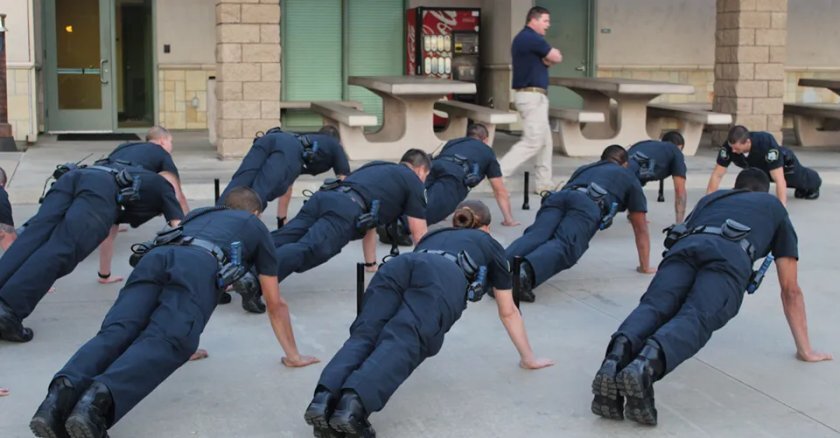From coast to coast, many public officials conflate police reform with giving departments more money and providing them with shiny new training facilities. Atlanta has under way a $90 million facility dubbed by opponents as “Cop City.” Chicago opened its $170 million facility in January. And Baltimore is in the architectural stage of planning a $330 million facility on the campus of Coppin State University, a predominately Black college on the city’s West Side; the opposition is already referring to that facility as another cop city.
It is not just the hefty price tag that has the communities agitated: It’s that there is little if any evidence that these types of investments contribute to public safety amid fears that they will accelerate the militarization of policing. Besides that, these projects often create deep fractures within communities where they are located, fractures that don’t always heal easily. Above all, they don’t change the culture of policing that Reinhardt tells us is key.
What I found interesting about Reinhardt’s analysis is how he blends research and personal experience as a police officer with his theological training in Christianity. By the time I finished reading his book, I better understood the science, culture and heart of policing. For example, early in Rethinking he describes a troubling scene where he answered a call about domestic violence. “When I arrived at the residence, I could hear visceral screaming,” he wrote. He thought he saw a man stabbing a woman on the couch. When he commanded the man to drop his knife and get on the floor, the man didn’t obey. He just kept walking toward Reinhardt. Reinhardt unholstered his gun and pointed it at the man, but he couldn’t bring himself to pull the trigger. “Finally, I turned him around to secure his knife. … It wasn’t there.”
It haunted him for years that he almost took the life of an unarmed man who meant him no harm. In the heat of the moment, with tension and anxiety running high, he imagined he saw a weapon that didn’t exist. This happens too often, the white ex-cop confessed, particularly when it involves officers encountering people of color.
Reinhardt understands that no national curricula exist that emphasize community policing and de-escalation. He spent four months in a police academy being schooled in defensive tactics, learning laws and standards of conduct, and training in firearms. He writes that the heart of academy training is the “indoctrination” into a particular culture. “You’re not just learning the curriculum, you’re absorbing the officers’ attitudes, vocabulary and mannerisms.”
These cultural factors lead many officers into violent encounters with residents, too often ending in preventable fatalities. The warrior mentality is embedded in the culture of police training, and it is perpetuated from academy to academy and generation after generation. This is the principal reason why giving police departments more funding does not always correlate to the lowering of crime or improved relations with the community. For this to occur, funding must be directed at changing the culture of policing — and that is easier said than done.
In the instance of the domestic call that Reinhardt answered, where he thought the man beating the woman had a knife, his academy training had taught him that “deadly force was the appropriate response to a knife attack,” Reinhardt writes. But his sixth sense prevented him from pulling the trigger. Luckily no one was injured, but too many officers would have shot first and dealt later with the consequences and the fact that the perpetrator was unarmed. Cops are trained to be warriors against crime and criminals, not to be social workers or mental health experts.

(Photo: InterVarsity Press)
For public officials in cities like Atlanta, Baltimore, Chicago and other places with new police training facilities being planned, under construction or in operation, Reinhardt’s book provides plenty of proposals and food for thought. First, he asks all of us to understand that “police culture matters.” All experiences and encounters of police officers are shaped by internal cultures. Mayors and other chief executives should do everything within their power to help change those internal cultures. This could very well mean going beyond building them new training facilities but investing more in things that help build character in them — things like helping more of them earn a college degree.
Changing the culture means changing the hearts of those who have been taught that residents are the enemies, particularly if they happen to be from communities of color, Reinhardt writes. ”If the culture does not promote valuing people in relationships within the community, the exercise of power — and specifically the use of force — can have catastrophic consequences.”
Finally, the ex-cop-turned-author wants us to know that change is possible and that police culture can be transformed. I believe this offers a huge opportunity for local officials to interact with their police officers on a human level. This should not be left merely to police chiefs, academy instructors and union leaders. Public officials should visit precincts when officers are beginning, ending or changing shifts, and, after thanking them for their service, talk to them honestly about the importance of seeing humanity in every resident they encounter. City fathers and mothers must lead the change in the culture of police departments like they attempt to do in every other department under their authority.
Reinhardt, other authors and public safety officials who care about police reform have provided leaders with a blueprint for change. Now it is up to them to grapple with the reality of a broken police culture and bring about the necessary changes.
Governing’s opinion columns reflect the views of their authors and not necessarily those of Governing’s editors or management.
Related Articles














